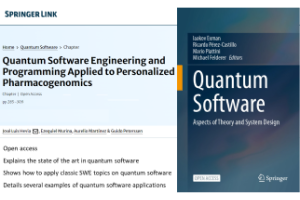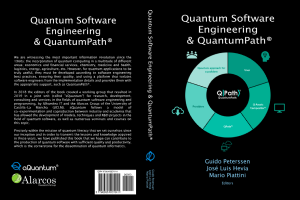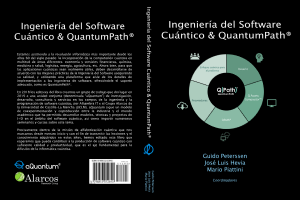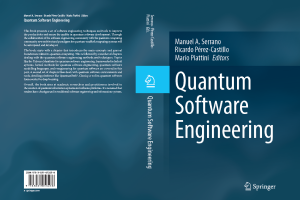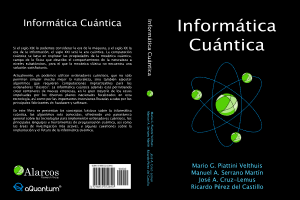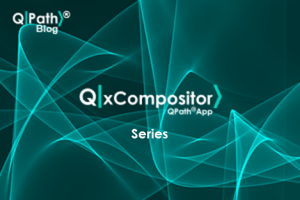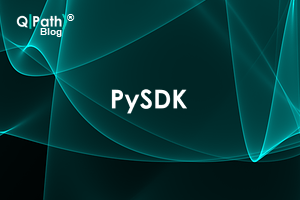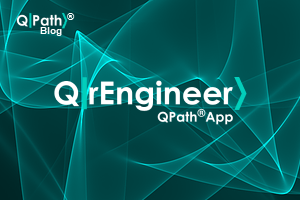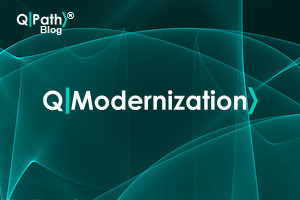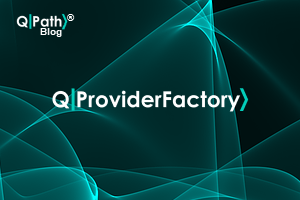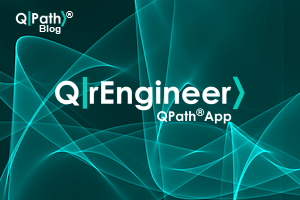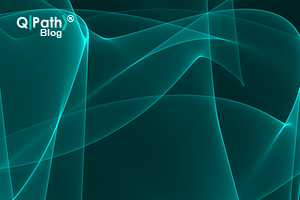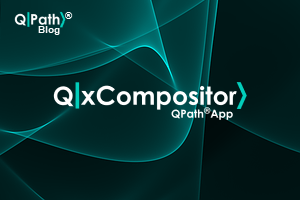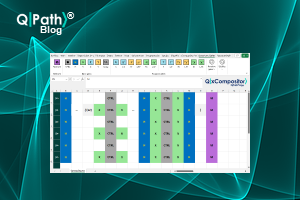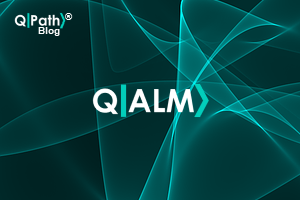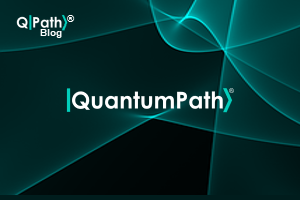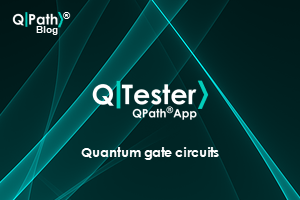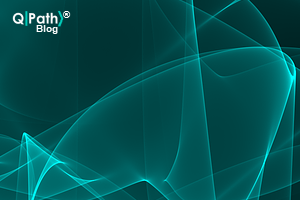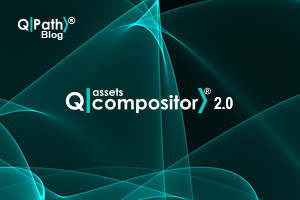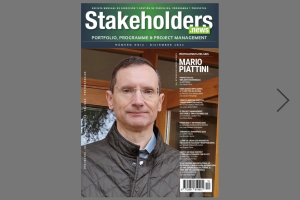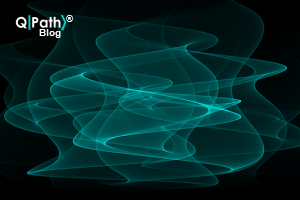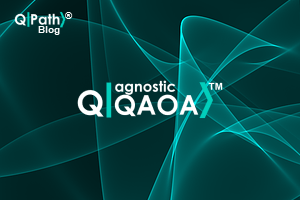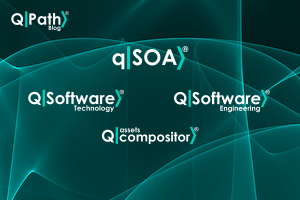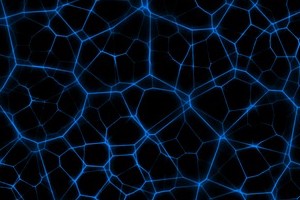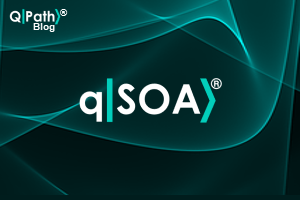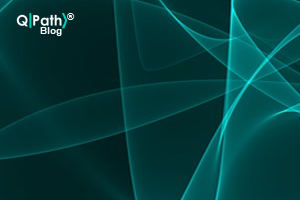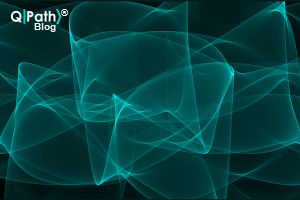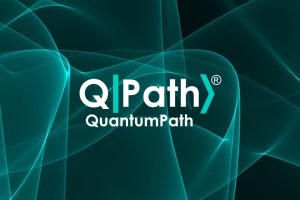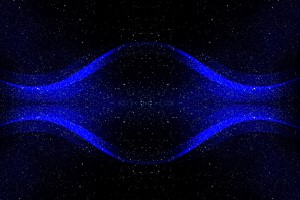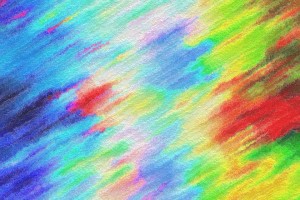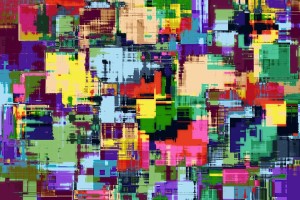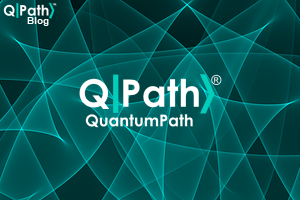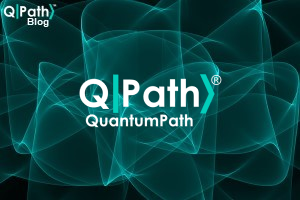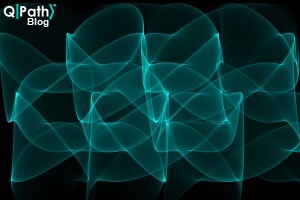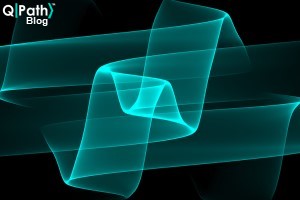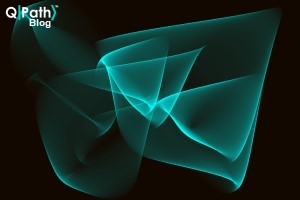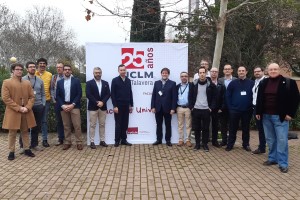Publications
Articles, papers, books and other quantum documents
Books
(5)
Quantum Software Engineering and Programming Applied to Personalized Pharmacogenomics
Authors: José Luis Hevia, Ezequiel Murina, Aurelio Martínez & Guido Peterssen
In this chapter, the authors present some of their results and experiences in the research and development of quantum pharmacogenomics, for which INUBE Instituto Universitario de Investigación has designed a pharmacogenomic model and aQuantum has developed an algorithm that takes into account genetic polymorphisms, drug polytherapy and clinical conditions. Based on the results of their PoC, the authors argue that the combination of this pharmacogenomic model, the corresponding quantum algorithm and the designed quantum/classical software systems will bring personalised pharmacogenomics to healthcare systems in a practical way.
aQuantum
published on Springer, 2024
Quantum Software Engineering & QuantumPath®
by Guido Peterssen, José Luis Hevia and Mario Piattini
English edition of the book edited and written by members of aQuantum. In the book, the authors state that, for quantum software to be truly useful for the industry, it must be developed according to the best practices of Software Engineering. In the different chapters of the book this statement is unpacked with the aim of showing, from different angles, that only professional quantum software development can provide the industry with what it expects from it: high-quality, secure, extensible, high performance, high scalability and to ensure the investment made in it.
UCLM-Alarcos Group
aQuantum
published on Amazon, 2023
Ingeniería del Software Cuántico & QuantumPath® (Spanish book on Quantum Software Engineering & QuantumPath®)
by Guido Peterssen, José Luis Hevia and Mario Piattini
Edited and written by members of aQuantum, the book presents a comprehensive summary of aQuantum’s scientific research and avant-garde development on Quantum Software Engineering and Programming, as well as showing, through examples and case studies, the fundamental characteristics of the software products developed based on those investigations that make it possible to develop quantum software and hybrid quantum/classical solutions with QuantumPath applying good practices of Quantum Software Engineering.
UCLM-Alarcos Group
aQuantum
published on Amazon, 2022
Quantum Software Engineering
Editors: Manuel A. Serrano, Ricardo Pérez-Castillo and Mario Piattini
Edited by members of aQuantum, the book contains the contributions of European researchers on Quantum Software Engineering and Programming from nine universities in five different countries and the collaboration of two quantum software companies from two countries.
This book introduces Software Engineering techniques and tools to improve the productivity and assure the quality in quantum software development. Shows the application of formal methods, modeling languages, and reengineering approaches to quantum software. Presents a set of quantum software environments, tools and frameworks.
UCLM-Alrcos Group
aQuantum
published on Springer, 2022
Informática Cuántica (Spanish book on Quantum Computing)
by Mario Piattini, Manuel A. Serrano, José Cruz Lemus and Ricardo Pérez-Castillo
Written by a group of researchers specializing in Quantum Software Engineering and Programming, this book presents the basic concepts of quantum computing, the best-known algorithms, offering an overview of the technologies to implement quantum computers, the main quantum programming languages and tools, as well as the most active research areas, and some questions about the implementation and future of quantum computing. The book is an important contribution to the dissemination of knowledge about quantum computing in Spanish.
UCLM-Alarcos Group
aQuantum
published on Amazon, 2022
Articles, papers and other quantum documents
(73)
Designing Complex Circuits with QuantumPath®
The quantum SAT solver
by José Luis Hevia and Adriana Palos Pereira
In this article, the authors show the convenience and usefulness of using the QuantumPath® Q xCompositor tool to work with circuits of great depth or containing certain design patterns. For this purpose, a quantum solver implementation of the Boolean satisfiability problem, or quantum SAT solver, is proposed as an example. The authors highlight that the Q xCompositor tool is a suitable instrument for the agile definition of a circuit of large dimensions, such as the SAT problem, showing in a practical way why Q xCompositor is a suitable tool for the agile definition of a high-dimensional circuit, such as the SAT problem.
aQuantum
QST
published on The QPath Blog, 2023
Developing in QuantumPath® with Python: Selectingthe development environment
PySDK qSOA®
by José Luis Hevia and Alonso Martín-Toledano
In this article the authors focus the analysis on the Python language, introducing readers to how to develop with the Python language in QPath® and its PySDK. To do so, they show how to work, step by step, with this programming language in two different development environments supported by the platform: Conda and Visual Studio Code. The article shows in a practical way how to develop with Python in QuantumPath®.
aQuantum
QST
published on The QPath Blog, 2023
Using QuantumPath® Q Provider Factory with quantum programs deployed with the Amazon Braket SDK
QrEngineer usage example
by Aurelio Martínez and José Luis Hevia
Article in which the authors show how to use, step by step, Q Provider Factory to run, through QuantumPath®, a quantum program implemented with Amazon Braket SDK. The example chosen for the article is an implementation of the Simon’s algorithm. The authors show, with another practical example, how Q Provider Factory opens a new path for developers of quantum applications who wish to manage the lifecycle of their developments with QPath®.
aQuantum
QST
published on The QPath Blog, 2023
QrEngineer APP beta1: quantum software reengineering tool (II)
Software modernization
by Aurelio Martínez and Guido Peterssen
In this second installment, the authors announce the release of beta 1 of the other QrEngineer APP module, QModernization, and show the functionalities of this module that make possible the modernization of quantum software with this QuantumPath® APP. The beta 1 of the QModernization tool supports quantum circuits developed in the languages Microsoft Q# (QSharp) and OpenQASM. The article shows, step by step, a project to modernize an algorithm developed with Q#.
aQuantum
QST
published on The QPath Blog, 2023
Using QuantumPath® Q Provider Factory with quantum programmes implemented with Ocean SDK
by Aurelio Martínez, Borja García Zapardiel, Guido Peterssen and José Luis Hevia
Article in which the authors show, step by step, a practical example of how to use Q Provider Factory to transpile and execute, through QuantumPath®, a quantum program implemented with Ocean SDK, Python development software provided by D-Wave that allows solving optimization problems on their annealing quantum computers. The authors highlight that Q Provider Factory opens a new path for developers of quantum applications who wish to use in the lifecycle of their developments the extensive set of tools, services, methods and processes of QPath®.
aQuantum
QST
published on The QPath Blog, 2023
QrEngineer APP beta 1: quantum software reengineering tool (I)
Adapter for quantum programs developed with the third-party SDK
by Aurelio Martínez, Guido Peterssen and José Luis Hevia
Article in which the authors announce the launch of Q|rEngineer>, a new QuantumPath® APP, which allows to perform different practical actions from the perspective of quantum software reengineering to adapt, with the least possible effort, algorithms developed in other environments to the QPath® architecture. In this first instalment of the article, the authors focus the analysis on Q Provider Factory, Q rEngineer’s tool for adapting quantum programs to QuantumPath® through its Q Provider Factory Python SDK and Q Provider Factory Web UI options.
aQuantum
QST
published on The QPath Blog, 2023
Expectations of quantum practitioners and the QuantumPath® approach
by Mario Piattini, José Luis Hevia and Guido Peterssen
Article in which the authors discuss, from their perspective as researchers and creators of technologies and tools for quantum software development, the key findings of QuEra Computing Inc.’s survey of readers’ expectations of quantum computers published by Quantum Computing Report and also explain how they have addressed these issues with QuantumPath®. The authors believe that the approach that they have taken in conceiving, building and deploying the platform has enabled them to anticipate and largely meet all the expectations expressed by quantum software professionals in this survey.
QST
published on The QPath Blog, 2023
Q xCompositor, practical examples of quantum gate circuit development
by José Luis Hevia and Alonso Martín-Toledano
In this article the authors show, in a practical way, how to work with Q xCompositor, a tool of the Q Assets Compositor® family of QuantumPath® that allows the development of circuits with Microsoft Excel, taking advantage of the features of this software. The practical exposition is carried out through two use cases: Creation of a 100-qubit QRNG circuit with Q xCompositor and Editing an existing circuit, Teleportation, with Q xCompositor.
aQuantum
QST
published on The QPath Blog, 2023
QuantumPath®'s Q Assets Compositor® family is growing: tools for enterprise quantum software development
by José Luis Hevia, Mario Piattini and Guido Peterssen
In this article autors present the new member of the Q Assets Compositor® family, Q xCompositor: a rich QuantumPath® client developed with Microsoft Excel, with the Q Assets Compositor® extensions for quantum circuit design.
QST
published on The QPath Blog, 2023
Professional development of quantum/classical hybrid software systems: the life cycle
by Guido Peterssen, José Luis Hevia and Mario Piattini
After the introduction to professional quantum software development in the article “Some reflections on professional quantum/classical software development”, in this article the authors address one of the different aspects of the wide, complex and changing “world” of professional quantum software development for industry: the life cycle of hybrid quantum/classical software systems.
QST
published on The QPath Blog, 2023
Some reflections on professional quantum/classical software development
by Guido Peterssen, Mario Piattini and José Luis Hevia
In this article the authors share with readers, on the occasion of today’s World Quantum Day, their thoughts on professional quantum/classical software development from the perspective of more than five years of R&D in Quantum Software Engineering and Programming to create professional tools and services for industry-ready quantum/classical software development.
UCLM-Alrcos Group
aQuantum
QST
published on The QPath Blog, 2023
QTester APP beta 1: test manager for quantum software
by Aurellio Martínez and Guido Peterssen
In this article the authors state that QTester APP is the result of an extensive research and development process initiated in 2019 when, motivated by the almost non-existent scientific and technical expertise on quantum software testing, the aQuantum research team took up the challenge of addressing quantum software testing research. The authors state that with the beta 1 of QTester APP takes the first practical steps to provide tools to developers of quantum gate circuits based on the best practices of Quantum Software Engineering.
aQuantum
QST
published on The QPath Blog, 2023
ChatGPT-4: first approach to its use, scope and limitations in quantum algorithms
by Ezequiel Murina, José Ignacio García and Martín Hurtado Heredia
This article focuses on the impact that a novel artificial intelligence tool such as ChatGPT can have in addressing solutions to questions related to quantum computing. Is the technology ready to be able to address solutions to problems based on the principles of quantum computing? If it is capable of providing a solution, is it correct? Is it at a point where its ability to be used to address elements of knowledge about quantum computing can be explored…?.
Alarcos Group
aQuantum
QST
published on The QPath Blog, 2023
Dynamic Analysis of Quantum Annealing Programs
by Luis Jiménez, Ricardo Perez-Castillo, and Mario Piattini
Quantum annealing software has gained a certain market penetration, demonstrating a good performance for optimization problems. However, there are no reverse engineering techniques with which to discover the underlying optimization problem definitions (the Hamiltonian functions to be minimized). This paper presents a dynamic analysis technique for D-Wave (Python) programs with which to reverse Hamiltonian expressions, and which are additionally represented according to the Knowledge Discovery Metamodel.
UCLM-Alarcos Group
aQuantum
published on Journal of Systems and Software, 2023
Q Asset Compositor® 2.0: functionalities and scalability for developing industry-ready quantum circuits with QuantumPath®
by José Luis Hevia, Mario Piattini and Guido Peterssen
In this article, the authors announce the release of Q Assets Compositor® 2.0, the new version of this QuantumPath® technology to agnostically and visually create quantum gate circuits a, which connect to the servers of quantum computer providers and retrieve the results. The authors highlight that the main technological novelty of Q Assets Compositor® 2.0 is that it natively supports the development of quantum gate circuits without qubit limits.
UCLM-Alarcos Group
aQuantum
QST
published on The QPath Blog, 2022
Interview with Mario Piattini, CRO of aQuantum, in Stakeholders.news
by Mario Piattini
Mario Piattini, member of aQuantum, has been interviewed in the Stakeholders.news magazine, in its December 2022 issue. The interview covers a wide range of topics related to Mario’s scientific, technological and intellectual activity undoubtedly focused on Software Engineering. In the interview our colleague highlights the creation of aQuantum, with the aim of developing Quantum Software Engineering, thus responding to the principles of the Talavera Manifesto
UCLM-Alarcos Group
aQuantum
published on Stakeholders.news, 2022
QuantumPath® and mitigating the impact of change on quantum computing vendors
by José Luis Hevia, Mario Piattini and Guido Peterssen
In this article, the authors show the impact that the change of a certain quantum technology provider can have and the importance of considering this possibility as something real in the risk management of quantum computing projects. The article shows how, depending on the way we prepare to manage this risk, this will be the quality of the response to critical situations linked to change management of quantum technologies, as well as the importance of a strategy based on the agnostic approach regarding technologies to mitigate the risks implicit in the change of quantum technologies.
UCLM-Alarcos Group
aQuantum
QST
published on The QPath Blog, 2022
Practical Quantum Computing with QuantumPath®: 3-qubit random number generator
by José Luis Hevia and Alonso Martin-Toledano
Article in which the authors present a complete example of integrating a QRNG circuit with a classic software application. In the example, the classic client will be responsible for calling the quantum circuit and collecting and post-processing the data. In QuantumPath® this process will be carried out in an agnostic way, starting from the design of the circuit (which once designed and available in QPath® can be reused whenever the client needs it), its control flow, and the encoding of the result, and the client will be able to launch the execution on any of the quantum computers available on the platform.
aQuantum
QST
published on The QPath Blog, 2022
QuantumPath® Agnostic QAOA: Annealing optimization algorithms on quantum gate computers
by José Luis Hevia, Mario Piattini and Guido Peterssen
Article in which the authors announce the launch of the latest technological innovation of QuantumPath®: Q Agnostic QAOA™, technology that offers a pre-parameterised implementation of agnostic ansatz capable of being run on different quantum gate providers in an annealing formulation problem. The article presents an example of how Q Agnostic QAOA™ works and discusses the benefits this technology brings to accelerating the adoption of quantum software..
UCLM-Alarcos Group
aQuantum
QST
published on The QPath Blog, 2022
Quantum Pharmacogenomics with QuantumPath® on Amazon Braket
by José Luis Hevia, Guido Peterssen and Mario Piattini,
In this post the authors discuss the characteristics of health and medicine applications, and present QuantumPath®, a platform designed and developed to accelerate the construction of hybrid software in the real world. The publication summarizes a real project on quantum pharmacogenomics, in this case applied to aging, and the integration of with Amazon Braket for the execution of the hybrid classical/quantum solution that will allow quantum services to be provided to doctors from their classical computers.
UCLM-Alarcos Group
aQuantum
QST
published on The QPath Blog, 2022
Advantages of QuantumPath® for Quantum Software Development
by Guido Peterssen, José Luis Hevia and Mario Piattini,
In this paper the authors, based on their extensive experience in Software Engineering and Programming, explain why, to develop professional, industry-ready quantum software that provides guarantees of quality, security, extensibility, high performance, and scalability, in addition to the programming language and source code management application, a set of tools and solutions is needed to work through each phase of development.
UCLM-Alarcos Group
aQuantum
QST
published on The QPath Blog, 2022
Reverse Engineering of Hamiltonian Expressions from D-Wave programs
by Luis Jiménez-Navas, Ricardo Pérez, and Mario Piattini,
In this paper the authors propose a dynamic analysis technique of D-Wave (python) programs for reversing Hamiltonians, which has been preliminarily evaluated with nine programs. The technique also represents those expressions by using the Knowledge Discovery Metamodel (ISO/IEC 19506). Due to the usage of this standard, the outgoing expressions can be represented in combination with other parts of classical-quantum software systems. Thus, the main implication is that this technique contributes to the software modernization of/towards hybrid information systems.
UCLM-Alarcos Group
aQuantum
published on IEEE Explore, 2022
Quantum Software Components and Platforms: Overview and Quality Assessment
by José Antonio Cruz, Manuel Serrano, Ricardo Pérez, and Mario Piattini,
Quantum computing is the latest revolution in computing and will probably come to be seen an advance as important as the steam engine or the information society. In the last few decades, our understanding of quantum computers has expanded and multiple efforts have been made to create languages, libraries, tools, and environments to facilitate their programming. Nonetheless, quantum computers are complex systems at the bottom of a stack of layers that programmers need to understand.
UCLM-Alarcos Group
aQuantum
published on ACM Computing Surveys, 2022
Design of classical-quantum systems with UML
by Ricardo Pérez del Castillo and Mario Piattini
The design of quantum software poses two main challenges: the modelling of software quantum elements must be done in high-level modelling languages; and the need to further develop so-called “hybrid information systems”, which combine quantum and classical software. To address these challenges, authors first propose a quantum UML profile for analysing and designing hybrid information systems. In comparison to certain other quantum domain-specific languages, this UML profile ensures compliance with a well-known international standard.
UCLM-Alarcos Group
aQuantum
publishe on Computing journal of Springer, 2022
qSOA®: technology for dynamic integration of quantum-classical hybrid software systems
by José Luis Hevia, Mario Piattini and Guido Peterssen
To be able to access quantum services centrally, the computing principle does not change: we need access via a communications network, an access protocol to the services of the new system and to apply best practices at all levels of access that have already been in place and well-tested for a long time. For this, QuantumPath® provides qSOA®, a technology that is positioned at the service layer of a computer system, which makes it possible to exploit the quantum services platform using an API.
UCLM-Alarcos Group
QST
published on The QPath Blog, 2022
QuantumPath® in the application of quantum computing to personalized pharmacogenomics
by Guido Peterssen, José Luis Hevia, Mario Piattini, Adrián Llerena and Eva M. Peñas Lledó
Being able to predict unexpected responses by individually adjusting pharmacological treatment is the challenge of pharmacogenetics. The joint management of all the variables will allow the generation of prediction scenarios of inter-individual and intra-individual variability according to temporal variables, something unimaginable without the quantum solutions proposed in QHealth project with QuantumPath®.
aQuantum
UCLM-Alarcos Group
INUBE
published on The QPath Blog, 2022
QuantumPath® accelerates practical preparation of quantum software developers
by Mario Piattini, José Luis Hevia and Guido Peterssen,
The learning curve for this new technology is significantly higher than previous ones and requires
much more time for the organisation to have the necessary skills. The lack of talent in quantum technologies in general, and especially in quantum computing, is tremendous and one of the most serious problems facing companies. QuantumPath® is very efficient for the training and preparation of the workforce required for quantum software development.
UCLM-Alarcos Group
QST
published on The QPath Blog, 2022
Practical Quantum Computing: Challenges of Quantum Software Development
by Guido Peterssen, Mario Piattini and José Luis Hevia,
In this article, the authors take a tour of the obstacles they have been encountering in their experience as quantum software developers. Finding the most appropriate solution to many of these obstacles became challenges. In the article, the authors show how these challenges were successfully overcome, as well as their specific implementations in QuantumPath®
UCLM-Alarcos Group
aQuantum
QST
published on The QPath Blog, 2022
QuantumPath: A quantum software development platform
by José Luis Hevia, Guido Peterssen and Mario Piattini
Quantum computing has experienced a breakthrough. Several companies aretaking up the challenge of designing and manufacturing quantum computers,and the supply of tools for quantum software development is growing all thetime. This article addresses quantum software development toolkits and introduces the ‘QuantumPath®’ platform. In developing QuantumPath®, our aim isto fulfil certain principles such as: agnosticism, extensibility, integration, independency, optimisation, scalability, security, usability and software engineering support.
UCLM-Alarcos Group
aQuantum
published on Journal of Software: Practive and Experience, 2021
QPath®, an accelerator for the adoption of Quantum Software. Workshop/Tutorial at EQTC 2021
by José Luis Hevia, Mario Piattini and Guido Peterssen
QuantumPath®, the quantum development and application lifecycle platform. In the workshop we showed why QPath® is an accelerator for the adoption of quantum software in the real world through its functionalities, the facilities it provides to develop algorithms and quantum applications for gates and annealing technology and how it can be dynamically integrated existing classical software applications with quantum software..
UCLM-Alrcos Group
aQuantum
published on aQuantum, 2021
Q Assets Compositor™: an easy path of compose quantum annealing solutions. Scientific/Technical Talk at EQTC 2021
by
In this paper we present a solution to this problem, the Q Assets Compositor™, which is part of QPath® [10], a quantum software development platform to support the design, implementation, and execution of quantum software applications. It is based on a hybrid model for the construction of services that abstract quantum technology without having to worry directly about the manufacturers’ platforms and their requirements.
aQuantum
UCLM – Alarcos Group
published on aQuantum, 2021
QHealth: “Quantum pharmacogenomics applied to ageing”. Scientific/Technical Talk at EQTC 2021
by Mario Piattini. Guido Peterssen, José Luis Hevia
QHealth is researching about the correlation among the genetic variables and other variables related to the health history of the patients. The study includes the adverse reactions to prescribing drugs in order to predict unwanted side effects of a specific one. This will be analyzed in function of the drugs consumption history of the patients, the reactions the older adult has experimented, and his/her physiological and genetic limitations.
aQuantum
UCLM – Alarcos Group
published on aQuantum, 2021
Talking About QuantumPath® & The SEI Agenda for Software Engineering Research & Development
James Dargan talks with Mario Piattini, Pepe Hevia Oliver and Guido Peterssen Nodarse
the Software Engineering Institute of the Carnegie Mellon University has just published a “National Agenda for Software Engineering Research & Development” titled: “Architecting the Future of Software Engineering”. For this reason, we have found it interesting to talk with Mario Piattini, José Luis Hevia and Guido Peterssen, who have not only been working on R&D for Software Engineering and Quantum Programming for some years, in the process of which they have dcreated QuantumPath®
UCLM-Alrcos Group
aQuantum
published on The Quantum Insider
QuantumPath´s Annealer Compositor
by
Among the various challenges that quantum computing faces to become a widespread reality are, on the one hand, the need to research and apply the existing software engineering processes; and on the other hand, the shortage of specialized workforce. QPath® is a tool that solves these two challenges, in addition to presenting other advantages for the development of hybrid information systems. In this paper authors present the Annealer Compositor that facilitates the definition and execution of annealing algorithms
aQuantum
UCLM – Alarcos Group
published on on CEUR-WS, 2021
Software Quality Issues in Quantum Information Systems
by Javier Verduro, Moisés Rodríguez and Mario Piattini
Quantum computers and envi-ronments are already offering great advantages when building advanced applications in fi-nance, health, or logistics. However, if industry is to boost the large-scale production of quantum software, an adequate quality level must be achieved and assured. In this sense, it is very important to consider quantum software quality platforms and products, and to create an effective quality environment for quantum software. In this paper we will summarise some of these issues.
aQuantum
UCLM – Alarcos Group
published on CEUR-WS, 2021
Short Papers Proceedings of the 2nd International Workshop on Software Engineering & Technology (Q-SET 2021) co-located with IEEE International Conference on Quantum Computing and Engineering (IEEE Quantum Week 2021)
Edited by Ricardo Pérez-Castillo, Manuel A. Serrano and Mario Piattini
There were 15 papers submitted for peer-review to this workshop. Out of these, 10 papers were accepted for this volume, 4 as regular papers and 6 as short papers.
UCLM-Alrcos Group
aQuantum
published on CEUR-WS, 2021
KDM to UML Model Transformation for Quantum Software Modernization
by , and Mario Piattini
This paper proposes a model transformation for generating UML models that represents quantum circuits as activity diagrams. Thanks to the usage of UML, these designs are technological-independent which contributes to the modernization of hybrid information systems. The outgoing UML models are compliant with a vast amount of design tools and might be understood by a big community.
aQuantum
UCLM – Alarcos Group
published on Communications in Computer and Information Science, vol 1439. Springer,2021
Quantum Computing
by Jose Luis Hevia, Guido Peterssen, Christof Ebert, and Mario Piattini
This article discusses the main quantum software development platforms, both proprietary quantum computer manufacturers and third party (more “agnostic”), as well as the challenges of using quantum software. The authors conclude that while the capabilities of theses platforms are good, it is necessary to invest time and effort in investigating how to fit them into a complete rigorous software lifecycle, to improve the productivity and assure quality quantum software development.
aQuantum
UCLM – Alarcos Group
published on IEEE Software,
the Issue 5, Vol. 38,
September-October 2021
Is quantum annealing quantum computing? The easy path of compose quantum annealing solutions
by Ezequiel Murina
In this article you will be introduced into the discussion about considering or not quantum annealing as quantum computing. The advantages of annealing technology will be highlighted as well as the tools offered by QPath® to make things easier no matter how complex is your pairwise interaction model. The text resolves around the role of an interface and an interesting analogy between annealer devices and musical instruments that add a new point of view.
aQuantum
QST
published on The QPath Blog, 2021
Requirements for a Robust Quantum Software Development Environment
by Mario Piattini
Mario Piattini outlines various quantum computing programming languages and the requirements of quantum software development environments. He also introduces quantum software engineering, identifies two of its key challenges, and discusses how they can be addressed. Piattini emphasizes the need for an integrated approach to quantum hardware and software R&D, quantum software education and training, and collaboration between industry and academia. As an example of such a collaboration, he describes an initiative called “aQuantum”.
UCLM – Alarcos Group
aQuantum
published on Cutter Technology 2021
Modelling Quantum Circuits with UML
by Ricardo Pérez del Castillo, Luis Jiménez Navajas and Mario Piattini
One of the challenges and lessons learned from classic software engineering is the need for high-level, abstract and technology independent representations with which to design software before it is coded. This paper specifically addresses this challenge for quantum software design. Our proposal comprises the definition of a UML profile based on various stereotypes that can be applied to the existing UML activity diagrams in order to represent quantum circuits.
UCLM – Alarcos Group
aQuantum
published on arxiv.org, 2021
Advantages of agnostic development of quantum algorithms and APPs for the real world with QPath
by Guido Peterssen Nodarse
The proposal of the emerging quantum computing industry for software development is currently broad and does not stop growing. Bearing in mind that the panorama is wide, and above that all changing at a frenetic pace, in this article exposure is limited to the tools of the main quantum computing providers and to QPath, our platform for the development and life cycle of quantum software applications..
aQuantum
QST
published on The QPath Blog, 2021
A guide to getting to know QuantumPath
by Guido Peterssen Nodarse
During the design, development and promotion of QPath, we published a series of resources on different sites (videos, articles, webinars, etc.) that, in each case, respond to specific communication needs. Most of these resources are complementary to each other and, therefore, can be presented in such a way that they follow a logical sequence that facilitates knowledge about QPath. This article introduces a route, with an ordered sequence of the existing public resources that allow to know the most relevant elements of the architecture and functionalities of QPath. This guide is intended as an aid for those who wish to easily access the information published on the internet about the features of QPath.
aQuantum
QST
published on The QPath Blog, 2021
QPath solves most of the quality problems of quantum computing platforms
by Mario Piattini Velthuis
It’s necessary a new “quantum software engineering”. Quantum software will need to be developed in an appropriate way. We can achieve something as influential as the methods and tools that have improved considerably in the last decades: structured programming, object-oriented programming, or DevOps/continuous software engineering.
How does QPath solve the quality problems presented by most quantum computing platforms?
UCLM – Alarcos Group
aQuantum
QST
published on The QPath Blog, 2021
Toward a Quantum Software Engineering
by Mario Piattini; Manuel Serrano; Ricardo Perez-Castillo; Guido Petersen; Jose Luis Hevia
Nowadays, we are at the dawn of a new age, the quantum era. Quantum computing is no longer a dream; it is a reality that needs to be adopted. But this new
technology is taking its first steps, so we still do not have models, standards, or methods to help us in the creation of new systems and the migration of current ones. Given the current state of quantum computing, we need to go back to the path software engineering took in the last century to achieve the new golden age for quantum software engineering.
University of Castilla-La Mancha
aQuantum
published on IEEE IT Professional
(Volume:23, Issue:1, Jan.-Feb.1 2021)
Introduction to quantum software development with QPath
by Guido Peterssen Nodarse and Jose Luis Hevia
Bearing in mind the variety of quantum computing providers and the current limitations of quantum hardware, this situation places quantum software designers and programmers in the difficult task of having to learn, train and develop competencies for each of these languages and kits. But, is there a way to avoid this situation and to be able to develop quantum software by abstracting from each vendor’s quantum computer and their respective languages and Quantum Software Development Kits?
aQuantum
QST
published on The QPath Blog, 2021
The QPath approach for Quantum Annealing
by Ezequiel Murina Moreno
Annealing as a foreign concept in computing science. Theory with practice. In full correspondence with this statement, the article focuses on explaining, through an attractive presentation and language, what is quantum annealing, how works the first commercial quantum annealer, what we code, and what QPath offers in this regard.
In a very interesting proposal, the author reels, through examples and questions, a journey to understand conceptually, from a scientific perspective, the Annealing concept and, on that basis, makes a transparent presentation of its application to the world of quantum computing.
aQuantum
QST
published on The QPath Blog, 2021
The QPath Modernization approach for the migration of classical-quantum information systems
by Ricardo Pérez-del Castillo
The article analyzes the importance for the development of practical quantum software of the characteristics that the QPath Platform incorporates for the modernization of quantum software. The QPath Modernization contributes to boost the construction and deployment of quantum applications as well as their integration with other classical software assets.
UCLM – Alarcos Group
aQuantum
QST
published on The QPath Blog, 2021
QPath Features
by Jose Luis Hevia
QPath, an ecosystem of tools, services and processes –gathered on a platform – that offers a complete and complex hybrid information system that allowsand execute quantum processing units regardless of the environment in which they run, abstracting the classic application from the complexities that characterize them. We are proud of presenting our vision of the path to quantum computing technologies and their importance in the design of the new concepts of information systems that are already among us: hybrid computer systems.
aQuantum
QST
published on The QPath Blog, 2020
QPath, a (very) useful platform for the emerging quantum software business
by Guido Peterssen Nodarse
QPath is a platform designed to support the integration of hybrid classical/quantum software and therefore contains the necessary tools to facilitate something as complex as dynamically integrating classical software with quantum computing.
aQuantum
QST
published on The QPath Blog, 2020
QPath, an accelerator of commercial quantum software development
by Guido Peterssen Nodarse
QPath helps circumvent the current limitations of the quantum workforce market and, in this sense, is an accelerator for the adoption of commercial quantum software development that contributes to the democratization of access to quantum computing.
aQuantum
QST
published on The QPath Blog, 2020
QPath helps secure investment and accelerates the adoption of quantum applications
by Mario Piattini Velthuis
QPath can significantly contribute to the adoption of quantum technologies and specifically enable companies to develop and deploy applications based on these technologies, safeguarding their investments.
UCLM – Alarcos Group
aQuantum
QST
published on The QPath Blog, 2020
Software modernization to embrace quantum technology
by Ricardo Pérez-del Castillo, Manuel A. Serrano y Mario Piattini
Quantum Computing is becoming an increasingly mature area, with a simultaneous escalation of investment in many sectors. Quantum technology will revolutionize all the engineering fields.
UCLM – Alarcos Group
aQuantum
published on Advances in Engineering Software, 2020
The Quantum Software Engineering Path
by Ricardo Pérez-del Castillo, Mario Piattini, Guido Peterssen, Jose Luis Hevia
Quantum Computing is becoming more and more a mature area while an investment scalation is happening in public and private sectors. There are a lot of promising application that never comes true with quantum computers in isolation. Quantum software is necessary to achieve all the claimed, cutting-edge applications in almost every business sector. Quantum software, as other kind of software, need to be planned, designed, coded, estimated, tested, quality-assured, evolved, among otherthings.
Social Sciences & IT Faculty, UCLM
UCLM
aQuantum
published on CEUR-WS, 2020
A Roadmap for Quantum Software Engineering: applying the lessons learned from the classics
by Enrique Moguel, Javier Berrocal, Jose García-Alonso and Juan Manuel Murillo
Quantum Computing is one of the emerging areas of computing that currently generates more expectations. However, there are many doubts about its actual future projection. On the one hand, the industry shows reluctance to invest in it. The main reasons are the high costs of the hardware, together with the fact that current commercial quantum computers offer a potential that goes little beyond experimentation.
SPILab – University of Extremadura
published on CEUR-WS, 2020
Off-the-shelf Components for Quantum Programming and Testing
by Cláudio Gomes, Daniel Fortunato, João Paulo Fernandes and Rui Abreu
In this position paper, we argue that readily available components are much needed as central contributions towards not only enlarging the community of quantum computer programmers, but also in order to increase their efficiency and effectiveness. We describe the work we intend to do towards providing
such components, namely by developing and making available libraries of quantum algorithms and data structures, and libraries for testing …
CIS Universidade de Coimbra
University of Porto
Instituto Superior Técnico of Lisbon
published on CEUR-WS, 2020
Requirements for Quantum Software Platforms
by Jose Luis Hevia
In present days, we are attending the raise and fast evolution of the quantum machines. Without even being as powerful as they can be, we can experiment their first steps and enjoying with our “knowledge from scratch” training creating, designing, testing and executing quantum algorithms from a software engineer perspective. But, how this new context can affect our vision and experience from a classical perspective? As IT industry experts, how those new quantum technologies can alter the life cycle of our projects, designs, tests, …?
aQuantum
published on CEUR-WS, 2020
Adapting COBIT for Quantum Computing Governance
by Miguel Ángel Blanco and Mario Piattini Velthuis
Quantum computing is a new paradigm that uses the properties of quantum mechanics to achieve computers and technologies more powerful. Quantum Technology will solve some types of problems more efficiently than current technology. Every organization that wants to use all the power of quantum computing to be more competitive in its sector, must have a method that allows it to take advantage of all the value that this technology can provide. This article proposes the development of a framework for the Management and Governance of Quantum Computing based on COBIT.
aQuantum – Alarcos Research Group.
published on Springer Nature, 2020
A Tool for Quantum Software Evolution
by Luis Jiménez-Navajas, Ricardo Pérez-del Castillo, and Mario Piattini
Quantum computing has been growing drastically for the last year due to all the possible applications that this new paradigm brings as well as its incomparable computational power. Therefore, the new information systems that will be developed in a future might be influenced by this paradigm. However, discarding the legacy information systems is not an option if those systems embed mission-critical knowledge over time.
UCLM
aQuantum by Alarcos
Social Sciences & IT Faculty, UCLM
published on CEUR-WS, 2020
Generalizing an Exactly-1 SAT Solver for Arbitrary Numbers of Variables, Clauses, and K
by Francesco Piro, Mehrnoosh Askarpour and Elisabetta Di Nitto
Quantum computers promise to allow for great improvements in the solution of ?-SAT problem, determining whether a set of clauses with ? variables have a satisfiable boolean assignment, which is one of the fundamental problems of computational logic. Given the recent advancements of quantum computers, we argue that they allow for great improvements in solving the ?-SAT problem.
DEIB – Politecnico di Milano
McMaster University
published on CEUR-WS, 2020
Reverse Engineering of Quantum Programs Toward KDM Models
by Luis Jiménez-Navajas, Ricardo Pérez-Castillo and Mario Piattini Velthuis
The new computing paradigm influences the way on how future information systems will be built. Legacy, classical systems cannot be simply replaced with quantum software by several reasons. First, legacy systems usually embed a lot of mission-critical knowledge over time, making its replacing too risky. Second, some business processes do not make sense to be supported through quantum computing because it supposes unnecessary expenses.
Social Science & Information Technology Faculty, University of Castilla-La Mancha.
published on Springer Nature, 2020
Math and Physics Tools for Quality Quantum Programming
by Ezequiel Murina
We are in presence of a quantum computing revolution that will be critical for the dominant global position of nations in near future. A solid knowledge base in math and physics is essential for a workforce able to develop high quality quantum technology. This work addresses the necessity of quantum literacy for the creation of a new workforce, proposing the basic math tools, and physics background for entering into the field of quantum programming. It also addresses a certification about Science Foundation for Quantum Programming, as a means for assuring the quality of quantum software professionals.
aQuantum by Alhambra.
published on Springer Nature, 2020
Quantum Agile Development Framework
by Guillermo José Hernández González & Claudio Andrés Paradela
The interest in quantum computing has grown exponentially in recent years, with large technology companies engaging in the creation of computers and quantum technologies. In this paper, aQuantum’s findings and proposals are defined to anticipate the future needs of quantum software project management, taking into account the new roles, requirements and deficiencies of this new technology.
aQuantum by Alhambra
published on Springer Nature, 2020
Quantum Computing: A New Software Engineering Golden Age
by Mario Piattini, Guido Peterssen, Ricardo Pérez-Castillo
Quantum computing is not an evolution of classical computer science; it is actually a revolution that completely changes the computing paradigm. We are sure that quantum computing will be the main driver for a new software engineering golden age during the present decade of the 2020s.
published on ACM, 2020
Talavera Manifesto
This manifesto collects some principles and commitments about the quantum software engineering and programming field, as well as some calls for action. This manifesto collects some principles and commitments about the quantum software engineering and programming field.
published on CEUR-WS, 2020
Quantum technology impact: the necessary workforce for developing quantum software
by Guido Peterssen
Quantum computing started recently from a historical point of view. This paper addresses the how quantum technology has impacted and will impact in society and, in particular, in quantum industry and academia. This study analyzes the necessary workforce for developing quantum software
aQuantum by Alhambra
published on CEUR-WS, 2020
Training Needs in Quantum Computing
by Mario Piattini
Quantum computing as a new computing paradigm is carrying a lot of changes in many industries, economy, legal, and other concerns. In additioncto this, new training needs are raising to provide the future, demanding professional profiles and even new jobs.
aQuantum – Alarcos Research Group
published on CEUR-WS, 2020
Introduction to Quantum Development
by Jose Luis Hevia
Brief presentation to introduce to the Quantum basics needed to understand the Quantum Computing Principles. Quantum Computers that make possible the usage of the fundamental part of the nature, to know more about the nature; that can give us a power of computation never seen before; and that require us a new way to address the problems.
aQuantum by Alhambra
published on CEUR-WS, 2020
Quantum algorithms for near-term devices
by Jordi Tura
Here we discuss quantum algorithms for the so-called k-local Hamiltonian problem. This is one of the problems that is QMA-complete which, roughly speaking, is the NP-complete analogue for a quantum computer.
Max-Planck-Institut für Quantenoptik
published on CEUR-WS, 2020
Quantum Machine Learning: Benefits and Practicalc Examples
by Frank Phillipson
A quantum computer that is useful in practice, is expected to be developed
in the next few years. An important application is expected to be machine
learning.
TNO
published on CEUR-WS, 2020
Quantum Software Testing
by Macario Polo Usaola
This article introduces some ideas and challenges related to the testing
of quantum programs. In particular, it approaches functional testing, white
box testing (specially mutation) and model-based testing.
Escuela Superior de Informática, Universidad de Castilla-La Mancha
published on CEUR-WS, 2020
Reengineering of Information Systems toward Classical-Quantum Systems
by Ricardo Pérez-Castillo
In the coming years, companies will progressively need to add quantum computing to some or all of their daily operations. It is clear that all existing, classical information systems cannot be thrown away. Instead of this, it is expected to add some quantum algorithms working embedded in classical information systems.
Social Science & Information Technology Faculty, University of Castilla-La Mancha
published on CEUR-WS, 2020
Adapting Service Delivery for Quantum Programming
by Guillermo José Hernández
Brief presentation to summarize the possible and predictable changes and challenges that service delivery needs to support to adequate to the quantum programming and other general quantum technologies.
aQuantum by Alhambra
published on CEUR-WS, 2020
Contact
Albasanz, 16
Edificio Antalia, Planta 4ª
28037 Madrid – España
Tel: +34 91 787 23 00
Fax: +34 91 787 23 01
aQuantum | Quantum Software Engineering

